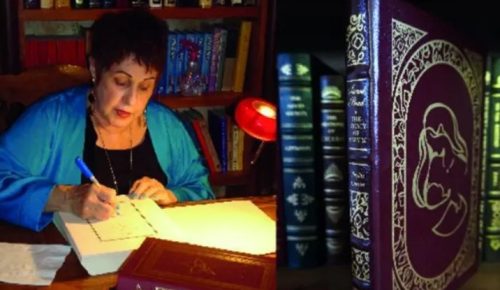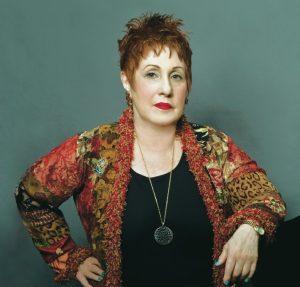Exposing Honor Killings: A Journey Through Feminism and Activism with Dr. Phyllis Chesler

Dr Chesler’s personal experience as a trapped bride in Kabul gave her horrific insights that have informed her research and books. She recounts these experiences in her memoir, An American Bride in Kabul.
Published date: 5/8/2024
*The opinions in this blog do not necessarily reflect the views of AHA Foundation*
Delve into the remarkable journey of Dr. Phyllis Chesler, a pioneer in feminist discourse, as she shares her transformative experiences from trapped bride in Kabul to groundbreaking researcher. From her seminal work on honor killings to her relentless advocacy for women’s rights globally, Dr. Chesler’s journey offers profound insights into the enduring struggle against gender-based violence.
AHA Foundation: Dr. Chesler, you’ve been a prominent figure in feminist discourse for decades. Can you share with us how your journey into activism and research on honor killings began?
Dr. Chesler: When I was a young bride and trapped in Kabul in 1961, I kept a diary. I used the word “patriarchy” to describe the misogyny I both witnessed and experienced. I plucked that word right out of the air. I got out, returned to college, and by 1967, I was empowered by the Second Wave of feminism in America. I had a more global view of woman’s fate. By 1967-68, I was an activist, while I completed my Ph.D. in Psychology. By 1970, I began pioneer research about violence against women. This included demanding reparations for the mistreatment, misdiagnosis, and unwarranted psychiatric imprisonment of women. In 1972, I published my first book: Women and Madness. I also wrote and spoke about rape, incest, sexual harassment, and women at the mercy of strangers and domestically violent intimates.
I documented the fact that women unjustly lost custody of children world-wide; that legalized commercial surrogacy is violent both to the children and to their birthmothers. I worked for almost 20 years on a book titled Woman’s Inhumanity to Woman. This work covered women’s “indirect aggression” towards other women historically and globally. I also focused on the nature of gang-rape in war zones as a form of gender cleansing, beginning with Bangladesh in 1971. That’s when I called for a feminist government, even in exile. By the early 21st century, I began writing about the rise of antisemitism, Islamic gender and religious apartheid, Islamic terrorism, honor based violence, and violence against women in prostitution. In 2005, I published The Death of Feminism which argued that Western feminists were betraying Muslim, Hindu, and Sikh women of color by refusing to understand what honor killings are, lest they be called “Islamophobic.” I covered honor killings in Europe, Canada, India, the United States, and in Muslim majority countries.
“Honor killing is femicide. I first heard whispers about honor killings in Kabul. Someone’s sister, a first wife, were suddenly ‘gone.’ I was given no explanation.”
AHA Foundation: Your work spans various aspects of women’s rights, including honor killings. Could you explain why you chose to focus on this particular issue and its significance within the broader context of gender-based violence?
Dr. Chesler: Honor killing is femicide. I first heard whispers about honor killings in Kabul. Someone’s sister, a first wife, were suddenly “gone.” I was given no explanation. That’s also where I learned, first-hand, about polygamy, the competition for paternal attention and an inheritance on the part of brothers who had different mothers; the burqa, the sequestration of women and men, the contempt in which women were held; and the preference for boys as sex objects. I wrote about this baptism by fire in An American Bride in Kabul. I nearly died there, but it also turned out to be a writer’s treasure. I also researched what happened to the Jews of Afghanistan and found some disquieting, even shocking facts that were quite personal. My mother-in-law, with whom I lived, tried to convert me every single day to Islam.
AHA Foundation: In your extensive research on honor killings, what are some of the key findings or patterns you’ve observed, particularly regarding the motivations behind these acts and their prevalence in different cultural contexts?
Dr. Chesler: I ultimately concluded that honor killing was a tribal, not a religious, custom. However, the religions whose followers practice such human sacrifice have failed to abolish it. This work has been the basis for my submission of affidavits in court cases involving women in flight from being honor killed and who are applying for political asylum in America. It has also been cited at least 75 times in academic works in countries such as Egypt, India, Iran, Jordan, Malaysia, Pakistan, Turkey, as well as in the West. (Some citations included accusations of Islamophobia).
Honor killing is not at all like Western domestic violence and perpetrators from different faiths have different reasons for carrying out these honor murders. Not everyone brings the practice with them into the West. Muslims perpetrate honor killings for many reasons (alleged or perceived female disobedience, alleged or real sexual impropriety, friendship with non-Muslims, dissident opinions, unacceptably advanced career goals, refusal to veil, marry one’s first cousin, or insist on divorcing a violent husband etc.). Muslims bring the custom with them into the West. Hindus practice it only in India and usually for one reason only — for caste system violations. Hindus do not perpetrate human sacrifice in the West. Contrary to myth, women are very involved as collaborators in honor killings.
AHA Foundation: Given your extensive experience in both academia and activism, what do you see as the most effective strategies for combating honor killings and promoting gender equality, particularly within communities where such practices are entrenched?
Dr. Chesler: Molly Melching founded Tostan in Senegal. She persuaded families to accept uncut girls as brides — and that began to reduce FGM and the number of child marriages. Perhaps this can be one of many models for the elimination of honor killing. Persuading clerics to condemn it and to excommunicate perpetrators and their families is another idea. Serious prosecution of honor killers — and the families that harbor them — might also work as an incentive against human sacrifice. Undertaking community-wide re-education is also essential.
“There are many unique features to the 10/7 pogrom on steroids. Here’s one: Never before have Westerners, especially feminists, cheered on and/or justified mass gang-rapists, be-headers, mutilators; never before have the usually indifferent Westerners joined Islamists in blaming the victims.”
AHA Foundation: Your book “An American Bride in Kabul” offers a deeply personal account of your experiences. How has your own journey informed your understanding of honor killings and shaped your approach to research and advocacy?
Dr. Chesler: While the book is personal it also draws upon the works of many other Westerners who visited Muslim countries in the 18th, 19th, and 20th centuries, as well as on the writings by both Muslims and non-Muslims such as Morag Murray Abdullah, M.H. Anwar, Roya Hakakian, Edward Hunter, Ann Jones, Rosanne Klass, Fawzia Koofi, Ida Lichter, Emmeline Lott, Fatima Mernissi, Azar Nafisi, Asne Seierstad, Penelope Tuson, Edith Wharton, Willow Wilson.

Dr Chesler hopes others will continue her work, looking at the variables associated with successful escapes. Photo credit: Joan L. Roth
AHA Foundation: You have dedicated your career to working at the forefront of the fight against gender-based violence; how did you react when, in the aftermath of Hamas’ Oct. 7 attack in Israel, many organizations and institutions with a mission to end gender-based violence chose to be silent about the horrific attacks as well as the ongoing physical, sexual, and emotional abuse inflicted against those who remain in captivity?
Dr. Chesler: I published 29 articles about 10/7 between October 9 and March 6, 2024. I was a cognitive warrior on fire. I had experienced and written about feminist and left-wing antisemitism, anti-Zionism, and suicidal critiques of Western Civilization for more than 60 years. Therefore I was not surprised by this odious, and ominous silence. There are many unique features to the 10/7 pogrom on steroids. Here’s one: Never before have Westerners, especially feminists, cheered on and/or justified mass gang-rapists, be-headers, mutilators; never before have the usually indifferent Westerners joined Islamists in blaming the victims. While the rapes in Bosnia were recorded for sale as pornography, never before had such rapists and murderers — i.e. Hamas — proudly livestreamed their crimes, and sadistically sent videos to their victims’ families and proudly to their own families in Gaza.
AHA Foundation: Looking ahead, what are your hopes and priorities in terms of future research, advocacy, and activism to combat honor killings and other forms of gender-based violence?
Dr. Chesler: I wanted to conduct a fifth and final study about the variables associated with successful escapes. I hope that others will take up this work.
Find out more about honor violence and AHA’s work
Blog: Former Prosecutor Laura Reckart Reacts to a Recent Capture of Honor Killing Suspect
AHA Foundation’s Conference on Honor Violence – 12/4/2013


